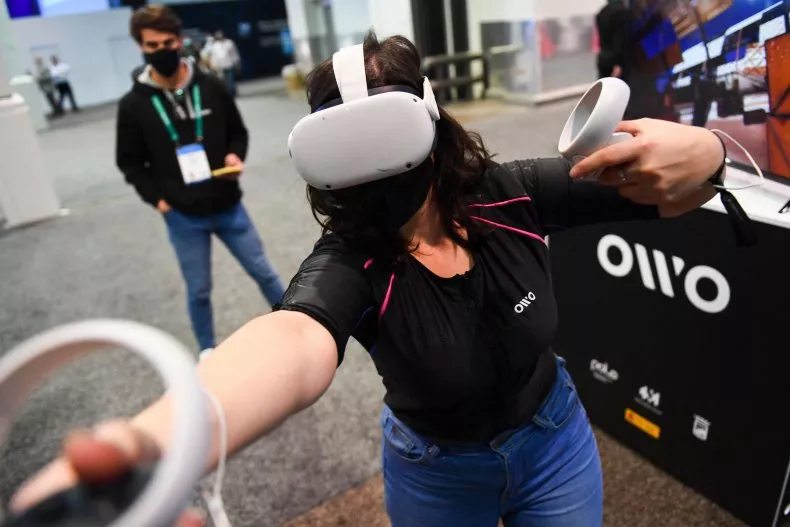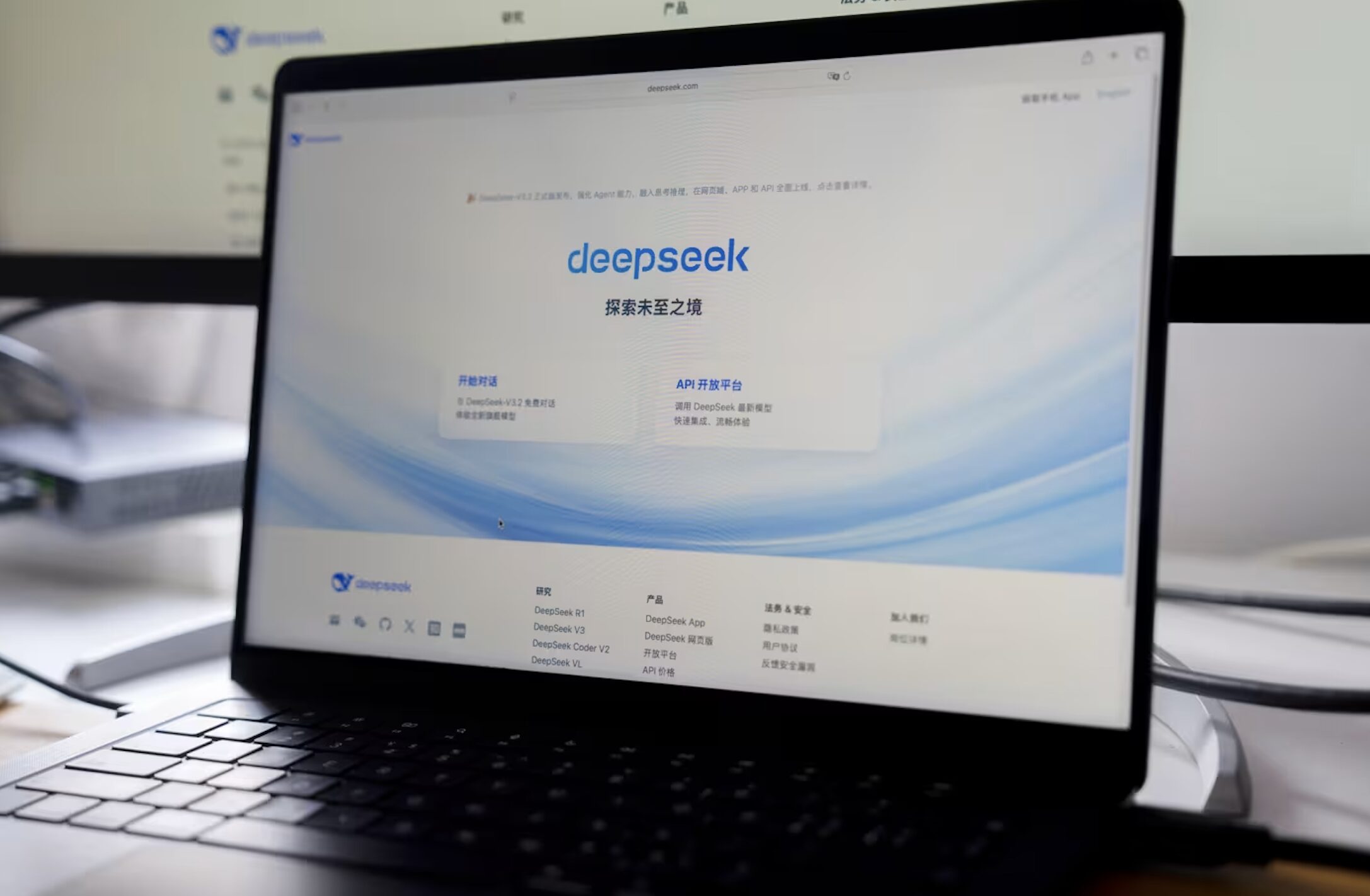
Dr. Sanjay Gupta: A New Way to Heal
Doctors have long prescribed pills and procedures. But for some people, that isn’t enough. Sanjay sits down with Julia Hotz, author of The Connection Cure, to explore the…
Thought Leader: Sanjay Gupta

Facebook’s recent announcement that it had changed its name to Meta in anticipation of the two-dimensional internet morphing into an immersive 3-D Metaverse has unleashed a boom in speculation about our digital future, along with investor interest. While no one can yet know exactly what the Metaverse will be, it’s already clear that our personal and professional lives will increasingly be lived in interactive and communal virtual spaces that will sometimes feel more like multi-player video games than like searching today’s web. But if we want to make sure our security, integrity, and freedom will be protected in these new worlds, we’ve got a lot of work to do.
Our shift from physical to virtual interactions dates back to the earliest days of smoke signals, mail, the telegraph, phone, and the Internet. But the COVID-19 lockdowns rapidly pushed most of us into far more intimate and significant virtual lives; we didn’t just join Zoom work meetings, but also Zoom dates, parties, weddings, funeral ceremonies, and much more. The virtual manifestations of each other on these video calls became the ones we interacted with most—and often most intimately.
While some people may have once thought our lives could be divided into the realms of virtual and real, the transition accelerated by the pandemic has shown us that our lives are lived in both physical and virtual spaces which together constitute our reality.
This monumental shift in our human experience is a harbinger of what will happen when our avatars, like our Zoom video images, don’t just represent and sometimes look exactly like us, but, in many ways, are us. That’s how the Metaverse will come to be seen not as a gaming platform but as a life platform.
Like their physical counterparts, our Metaverse avatars will accrue histories of our tastes, preferences, relationships, and experiences that will be part of our virtual selves wherever we go. Over time, these avatars will become virtual embodiments of our identities, even living on after our physical deaths as more accurate representations of us than the fleeting memories of friends and relations.
This revolutionary prospect of partly dematerializing our human existence should both excite and frighten us. As opposed to our ancestors, whose lives were bound by geography and largely defined by the people in the physical communities around them, we’ll have the most intimate relationships with people physically far away. We’ll create new possibilities we can today hardly imagine: Metaverse travel will be real travel, even to imaginary worlds; virtual relationships will be real relationships; empires and careers will be won and lost in entirely digital realms.
But given the coming centrality of these immersive virtual worlds to our lives and all that entails, there’s a danger these worlds could become dystopian and abusive if we’re not careful.
When Facebook first launched in 2004, many people thought it was just a digital photo album for college kids. Flash forward a decade and it was being used to swing real world elections and spark mass human rights abuses. Just like the early fantasies of an open internet liberating the world have given way to authoritarian governments using internet tools to control their populations, so too can the code of the Metaverse be written to oppress. Many corporations and governments might feel incentivized to abuse our privacy, manipulate our actions, and limit our freedoms.
Because the future of the Metaverse is not predetermined, the difference between these utopian and dystopian futures is still up for grabs and, in many ways, up to us. Our actions now will largely determine whether the Metaverse develops in ways that serve our individual and collective needs or undermine them, expand our human possibilities or limit them, strengthen our societies or subvert them.
Thinking about how to guide emerging technologies always poses a conundrum. When any potentially revolutionary technology is under development and the new world being created seems abstract and under-realized, there’s a logical tendency in the early days of development to let things grow organically and avoid trying to solve problems which have yet to materialize. But if we wait for systemic challenges to emerge in sharp relief before addressing them, the die of decisions long-since made is already cast and changing entrenched problems is a massive uphill battle.
Given the centrality of the Metaverse to our futures, we can’t make the same mistakes as we did in the early days of the Internet, when we allowed fledgling Internet companies to largely have their way; after all, many of the issues which later emerged could have been prevented with wiser and earlier guidelines.
That’s why we must now begin a process for establishing preliminary core principles to guide our efforts building a Metaverse optimized for the common good. We’ve got to find the right balance between being permissive enough to allow space for this new platform to emerge but not so hands-off that we allow major, foreseeable future threats to take root.
An important first step we must now take in this direction is to hold a first constitutional congress for the Metaverse.
This very preliminary effort must be decentralized and inclusive, giving voice to people of all backgrounds across the globe and users of all major existing platforms. It must seek to generate core principles that are flexible enough to guide the development of the Metaverse but not so rigid as to impede it. These principles should include full transportability of personal data across worlds, strong privacy protections that apply to avatars as they move across jurisdictions, dispute resolution systems available to all and articulated basic rights. But other ideas will likely emerge through an open process which might surprise us.
The goal of the congress is not to come up with binding principles set in stone but instead to launch an ongoing and increasingly inclusive consultative process designed to give voice to people of all backgrounds and to generate dynamic norms that can be modified over time and guide future efforts.
While holding a constitutional congress for the Metaverse before the Metaverse even exists may seem premature, it’s far better to make our collective voices heard now than to sleep walk into becoming second class citizens of worlds we’ve had no voice in creating.
Global corporations and authoritarian governments are spending billions to build the coming Metaverse, each with their own vision of what it should be. The time has come the rest of us to come up with a plan of our own.
Jamie Metzl is a technology futurist and Founder and Chair of the global interdependence movement, OneShared.World, which is in the early stages of planning a first constitutional congress of the Metaverse. He is the author of five books, including Hacking Darwin: Genetic Engineering and the Future of Humanity and previously served on the US National Security Council and State Department and with the United Nations.
The views in this article are the writer’s own.
Dr. Sanjay Gupta: A New Way to Heal
Doctors have long prescribed pills and procedures. But for some people, that isn’t enough. Sanjay sits down with Julia Hotz, author of The Connection Cure, to explore the…
Thought Leader: Sanjay Gupta
Mike Pence Talks Trump’s Foreign Policy
Former US VP Mike Pence discusses President Trump’s foreign policy with Greenland, Russia, and Ukraine. He says he commends President Trump on finding a framework…
Thought Leader: Mike Pence
Chris Miller: What We’ve Learned from the DeepSeek AI Shock
One Year After DeepSeek, America’s AI Lead Still Holds When Chinese AI lab DeepSeek released its R1 reasoning model last year, markets panicked. Nearly $1…
Thought Leader: Chris Miller

